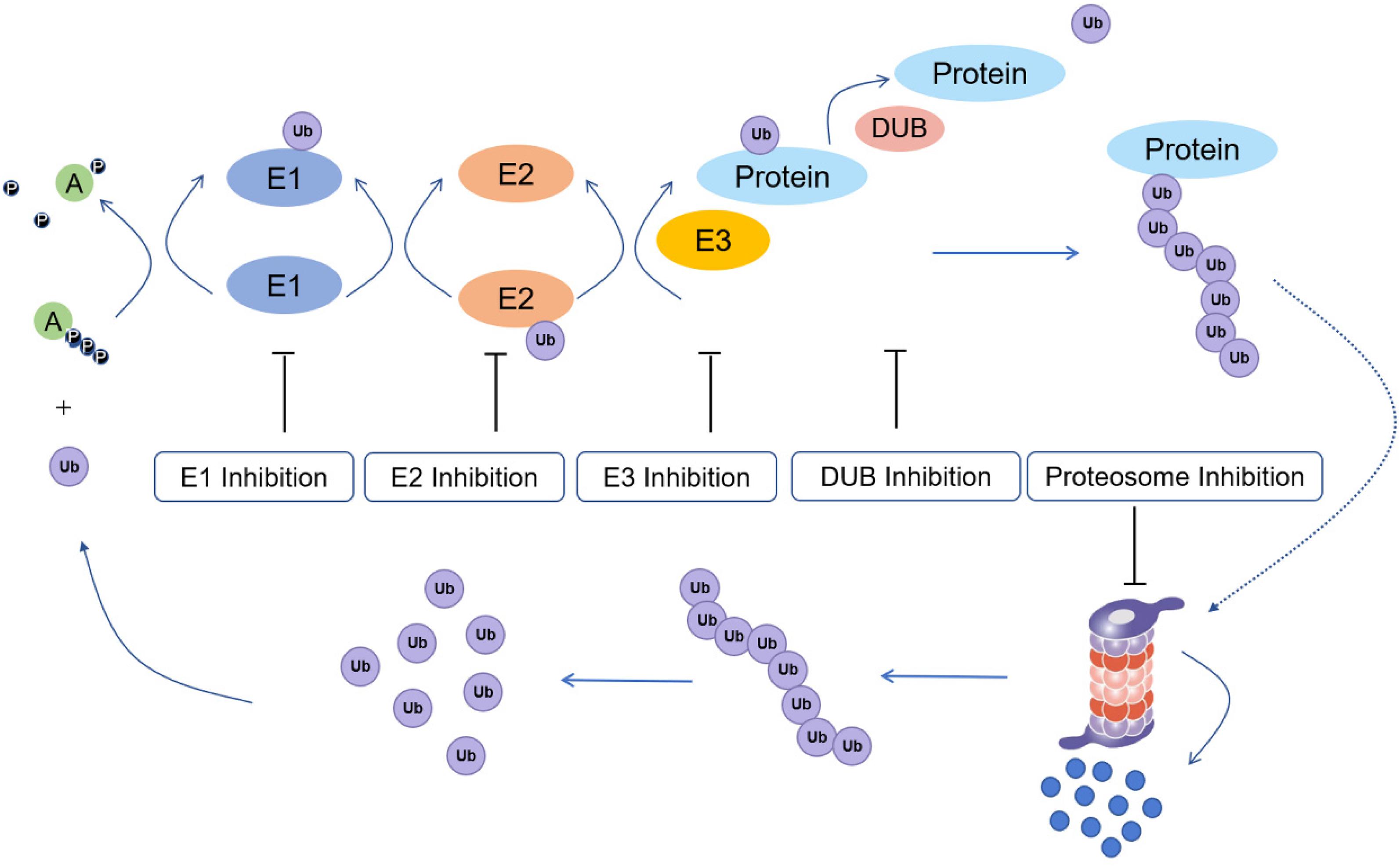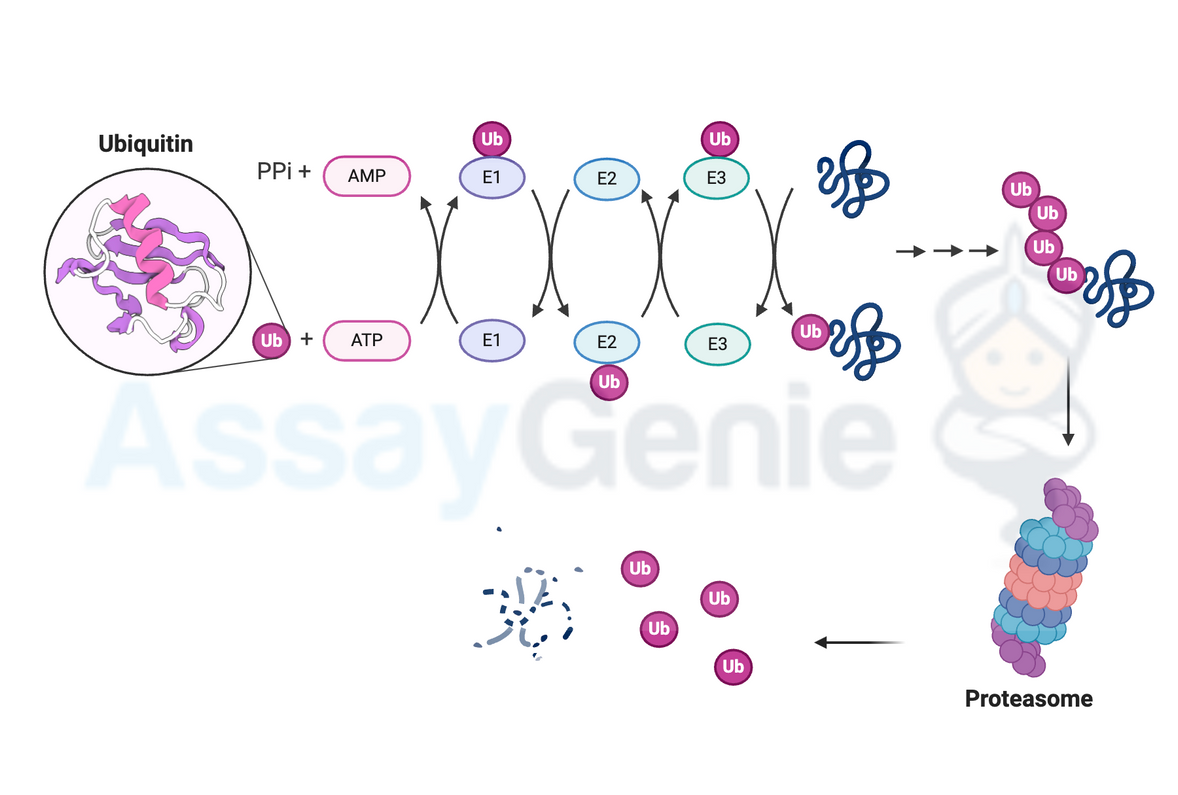What Determines the Specificity and Outcomes of Ubiquitin Signaling Cell Biology Diagrams Contrary to reversible modifications, such as phosphorylation or association with CKIs, ubiquitin-mediated proteasomal degradation is an irreversible mechanism that assures the strict unidirectionality of the cell cycle, and it plays a key role in cell cycle regulation by mediating the precise spatial and temporal proteolysis of the main

Besides tagging proteins for degradation, ubiquitin is now recognized as a signaling module for diverse cellular processes, including progression through the cell cycle, DNA repair, gene transcription, receptor trafficking and endocytosis. Recent advances have indicated the existence of a wide varie … In the cell cycle, ubiquitination plays a central role in cell cycle transitions and checkpoints by establishing the strict temporal control of proteins such as cyclins, CDKs, CKIs, other kinases and phosphatases . The UPS is one of the protein degradation pathways in eukaryotic cells, and most proteins rely on this system for degradation.

binding proteins in cell signaling Biology Diagrams
The ubiquitin-proteasome system plays a pivotal role in the sequence of events leading to cell division known as the cell cycle. Not only does ubiquitin-mediated proteolysis constitute a critical component of the core oscillator that drives the cell cycle in all eukaryotes, it is also central to the mechanisms that ensure that the integrity of the genome is maintained. Dang et al. discuss how ubiquitination, particularly the two E3 ubiquitin ligases anaphase-promoting complex/cyclosome (APC/C) and the Skp1-Cul1-F-box 8 (SCF) complex, regulate cell cycle

Several ubiquitin ligases are altered in cancer. These proteins are crucial for the ubiquitin-mediated degradation of cell-cycle proteins, ensuring regulated progression through the cycle. The anaphase-promoting complex/cyclosome (APC/C) exemplifies this strategy, as it employs substrate adaptors such as Cdh1 and Cdc20 to mediate cell cycle-dependent ubiquitination. This modular approach enhances specificity and allows for temporal regulation, ensuring proteins are ubiquitinated only at appropriate stages of the cell cycle.

The role of ubiquitination in health and disease Biology Diagrams
The SAC generates a diffusible "wait anaphase" signal through unattached kinetochores. 162 In securin‐deficient cells, researchers have identified human shugoshin 2 (Sgo2), which forms a complex with mitotic‐arrest deficient‐1 (Mad2), substituting the role of securin in these cells. 163 The interplay between APC/C, the SAC, and early

The small protein ubiquitin plays a vital role in virtually all aspects of cellular life. Among the diverse signaling outcomes associated with ubiquitination, the most well-established is the targeted degradation of substrates via the proteasome. During cell growth and proliferation, ubiquitin plays an outsized role in promoting progression through the cell cycle.
